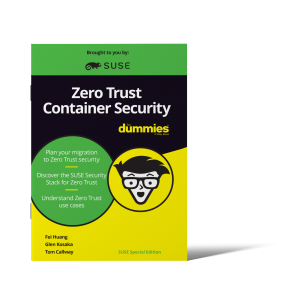How to Explain Zero Trust to Your Tech Leadership: Gartner Report
Does it seem like everyone’s talking about Zero Trust? Maybe you know everything there is to know about Zero Trust, especially Zero Trust for container security. But if your Zero Trust initiatives are being met with brick walls or blank stares, maybe you need some help from Gartner®. And they’ve got just the thing to help you explain the value of Zero Trust to your leadership; It’s called Quick Answer: How to Explain Zero Trust to Technology Executives.
So What is Zero Trust?
According to authors Charlie Winckless and Neil MacDonald from Gartner, “Zero Trust is a misnomer; it does not mean ‘no trust’ but zero implicit trust and use of risk-appropriate, explicit trust. To obtain funding and support for Zero Trust initiatives, security and risk management leaders must be able to explain the benefits to their technical executive leaders.”
Explaining Zero Trust to Technology Executives
This Quick Answer starts by introducing the concept of Zero Trust so that you can do the same. According to the authors, “Zero Trust is a mindset (or paradigm) that defines key security initiatives. A Zero Trust mindset extends beyond networking and can be applied to multiple aspects of enterprise systems. It is not solely purchased as a product or set of products.” Furthermore,
”Zero Trust involves systematically removing implicit trust in IT infrastructures.”
The report also helps you explain the business value of Zero Trust to your leadership. For example, “Zero trust forms a guiding principle for security architectures that improve security posture and increase cyber-resiliency,” write Winckless and MacDonald.
Next Steps to Learn about Zero Trust Container Security
Get this report and learn more about Zero Trust, how it can bring greater security to your container infrastructure and how you can explain the need for Zero Trust to your leadership team.
 For even more on Zero Trust, read our new book, Zero Trust Container Security for Dummies.
For even more on Zero Trust, read our new book, Zero Trust Container Security for Dummies.
Related Articles
Jan 08th, 2025